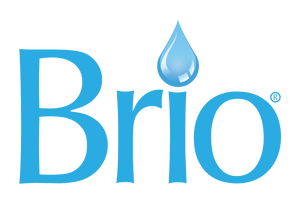Hydration is important for everyone. Medical experts agree that most people should drink between 11 and 15 cups of water a day for optimal hydration. As well as staving off thirst, water can flush bacteria out of your system, help regulate your temperature, and aid your digestion.
For anyone with diabetes, hydration is especially critical to help manage blood sugar levels. So, how much water should a diabetic drink daily? It depends on a number of factors, as you’ll discover below.
The Link Between Hydration and Diabetes Management

When you don’t drink enough water, it can raise your blood sugar levels. For anyone with diabetes, this can spell bad news. Diabetes management is all about maintaining an optimal blood sugar level either via lifestyle, medications including insulin injections, or a combination of both. Hydration is a vital aspect of managing blood sugar levels in both type 1 and type 2 diabetes.
Various studies indicate that dehydration can cause elevated blood sugar levels, also known as hyperglycemia. Benefits of drinking regularly include:
- A lower risk of infection and inflammation as water helps flush the kidneys and bladder of microorganisms like bacteria.
- Consistent liver and kidney function.
- Improved mood and better sleep.
Also, diabetes and high blood sugar can cause excessive urination. As this can lead to dehydration, it becomes even more important for those with diabetes to drink more regularly.
What Drinks Are Good for Diabetics?

One of the most commonly asked questions when creating diabetic diet plans is this: What can diabetics drink?
The top answer is definitely water. Water contains no sugar, so it only impacts your blood sugar levels by managing dehydration. Conversely, sugary drinks like juice and soda can cause blood sugar spikes that make diabetes harder to manage. Households with diabetic members may want to invest in a water filtration system to ensure they always have clean, pure water on hand. A filtration system could also help households save money and space compared to buying bottled water.
Note: Someone may drink a sugary soda when suffering from hypoglycemia where blood sugar levels fall dramatically. Only do this as part of a pre-agreed diabetes management plan made in conjunction with a medical professional.
Of course, only drinking plain water can become dull over time. You might try adding a few small pieces of fruit to your water. This will improve its taste without raising the sugar content too much. Citrus fruit tends to offer the biggest flavor boost, and it has the benefit of vitamin C. Sparkling water with a splash of concentrated fruit juice can also be a refreshing change.
Many teas and infusions are suitable for diabetics, too. They add flavor without adjusting the sugar content too much. Unsweetened coffee can also be a good option. Coffee consumption has been linked to a lower risk of type 2 diabetes, although there is other research that suggests high caffeine intake could impact insulin sensitivity.
Remember, any sudden change in diet should always be discussed with your doctor.
Signs That You’re Not Drinking Enough Water
How do you know if you’re drinking enough water? After all, if your blood sugar is higher than usual, you may still feel thirsty even after drinking the recommended amount of 11-15 cups per day. You can keep an eye on your hydration levels by looking out for the following signs of dehydration:
- Your urine is darker than usual or smells unusually strong.
- You’re not sweating as much as usual in hot weather or when exercising.
- Your skin is dry and irritated.
- You’re unusually tired, have poor focus, or can’t concentrate on simple tasks.
If dehydration becomes severe, it can lead to a drop in blood pressure, dizziness, heart palpitations, and eventually unconsciousness.
Managing Water Intake With Diabetes

You can help keep yourself hydrated with these water intake tips:
- Set a reminder on your smartphone or digital calendar to take a drink of water.
- Get a bottle with marks to show how much you’ve had throughout the day.
- Keep a bottle of water with you at all times — when walking, when at work, and when in the car.
- Use fruit juice and whole fruit to make water more interesting without impacting your health negatively.
You can also talk to your doctor or other medical professional about how much water they recommend you drink daily. Every diabetic needs different volumes of water depending on the severity of the condition, their weight, and lifestyle factors such as how active they are. Get advice about what should work for you and be ready to make adjustments in line with that guidance.
Plus, the more you talk about a topic, the more it becomes an everyday part of your life that’s easier to manage.
Disclaimer: This article is for educational purposes only and is not a substitute for professional medical advice. If you have concerns about any aspect of your health, please speak to your healthcare provider.




